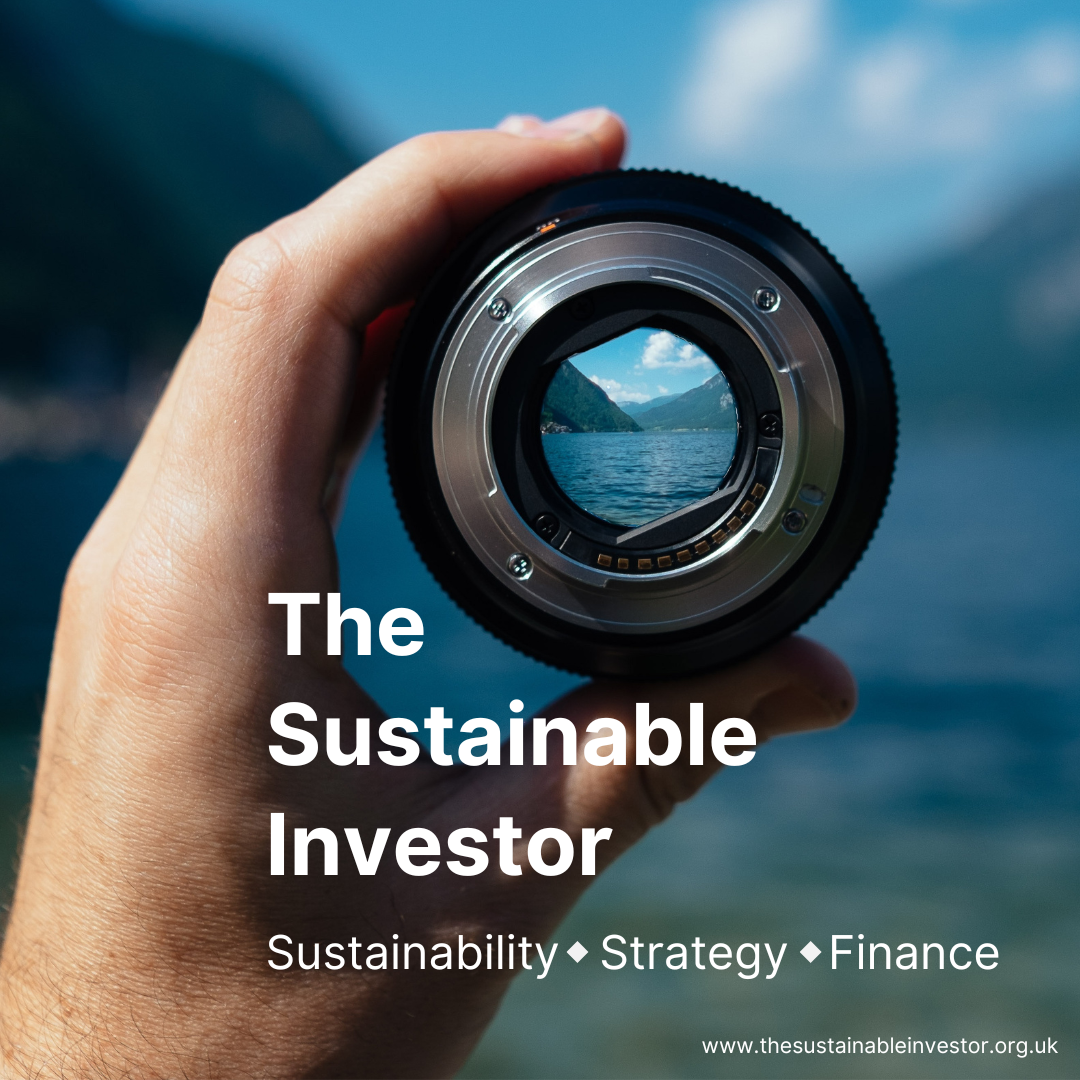
Sunday Brunch: good faith is no defence for lack of foresight
Are directors properly discharging their fiduciary duty by taking into account the changing landscape in which they operate?
"The dark side clouds everything. Impossible to see, the future is"
Yoda, Jedi Order Grand Master
In 2015, almost half of Poland's electricity production was generated at hard coal-fired power plants and almost one third at lignite-fired (brown coal) power plants. So when Polish energy companies Energa and Enea greenlit the construction of the Ostrołęka C coal fired power plant in 2018, could the directors who approved the investment have foreseen that in 2020 the project would be abandoned with PLN 1bn of investment written off?
Impossible to see, the future is. Or is it?
Well a few people thought so. Carbon Tracker published a report in August 2018 highlighting that the project could have a negative net present value (NPV) over its lifetime citing competition from renewables (that were cheaper), the impact of EU energy reforms and rising carbon prices as well as difficulties in securing necessary financing.
ClientEarth took legal action against the project in 2018 and won their case in 2019. A couple of years later Najwyższa Izba Kontroli, Poland's Supreme Audit Office, recommended action against former board members of Enea.
Indeed, now the current management of Polish energy company Enea, with the backing of 87% of Enea's shareholders, are suing the company's former directors and insurers for lack of due diligence over the project and investment decision which has ended up losing the company PLN 650m (USD 160m).
This quote from one of ClientEarth's lawyers, Marcin Stoczkiewicz summarises an important point:
“This case is a notable first and underlines board directors’ potential liability for ongoing fossil fuel investments in a rapidly shifting economic, policy and regulatory landscape. It is also highly relevant to directors’ and officers’ insurers, named as defendants in the company’s damages claim.”
Marcin Stoczkiewicz, ClientEarth lawyer
It also raises a broader issue than future fossil fuel investments and climate change.
Are directors properly discharging their fiduciary duty by taking into account the changing landscape in which they operate? In other words taking into account future risks and opportunities in their decision making including systemic risks. Are they using foresight?
I'll look at that issue more broadly but let's start by focusing on the biggie. Climate risk.
If you want to read the rest and are not already a member...

Climate change and fiduciary duty.
The Financial Markets and Law Committee (FMLC) recently completed a review of pension trustees' fiduciary duties, as part of the UK government's Green Finance Strategy 2023. Their conclusion was that trustees incorporating the financial perspective of climate and other sustainability matters into their investment decision-making process is consistent with their fiduciary duties. They went further to say that sustainability is integral to the decision-making process.
The Commonwealth Climate and Law Initiative (CCLI) and the Climate Governance Initiative published a briefing at the back end of last year highlighting key developments in the landscape of sustainability-related corporate responsibilities.
Amongst the developments are the EU's Corporate Sustainability Due Diligence Directive (CSDDD) whose decision to proceed to a final vote in the European Parliament was postponed on Friday (9th Feb) as Germany abstained. The CSDDD would add consideration of human rights, climate change and environmental consequences to existing fiduciary duties of directors to act in the best interests of the company. Competitiveness appears to be a concern for German corporates who are already subject to requirements of Lieferkettensorgfaltspflichtengesetz or the German Supply Chain Due Diligence Act.
CCLI also pointed out in the briefing that whilst two climate-related derivative claims, which are actions brought by shareholders on behalf of the company against directors personally failed (including ClientEarth v Shell), CCLI point out that "directors will want to consider climate-related risk to avoid potential costs to the company."
This jumped out at me from their comments too: "Since derivative claims can also be made against former directors, decisions that directors make today could lead to future liability once loss has crystallised. The court will consider whether, based on the knowledge that was reasonably available at the time of the decision, directors failed to give due consideration to early warning signs."
This brings me on to the meat of my discussion and why I think the Enea lawsuit has more resonance beyond climate change.
Let's pause for a second and remind ourselves what we mean by 'fiduciary duty'
What is fiduciary duty?
Having spent almost 7 years at PricewaterhouseCoopers (originally Price Waterhouse) and over 18 years at Morgan Stanley, I moved onto my first director position at a sustainability intelligence start up at the age of 47, first as Chief Operating Officer and then as Chief Executive Officer.
I took up first non-executive director (NED) position late last year at the age of 52 at Yellow Submarine AI, an innovative footfall data company. The age range for NED appointments is typically between 42-65 in the UK, so the right time. It was a perfect first NED appointment for me as it tapped into experience, knowledge and a client network that I was not actively pursuing in my day jobs (including The Sustainable Investor!). Importantly, I could devote sufficient time and attention to fulfil my fiduciary duty.
But what do we mean by 'fiduciary duty'?
The Corporate Governance Institute summarises fiduciary duties of company directors as being to:
- act in good faith
- act honestly and responsibly
- act under the company’s constitution
- not use the company’s information, property, or any opportunities regarding the company for their own or anyone else’s benefit, unless permitted by the company
These overlap and interconnect with both common law and statutory duties - In the UK, for example, the concept of ‘Enlightened Shareholder Value’ was introduced to Section 172 (1) of the Companies Act, helping to ensure that employees and other stakeholders receive consideration during a director’s decision-making process, as well as the company and its shareholders.
Section 172 (1) states that "a director of a company must act, in the way he considers, in good faith, would be most likely to promote the success of the company for the benefit of its members as a whole, and in doing so have regard (amongst other matters) to -
(a) the likely consequences of any decision in the long term,
(b) the interests of the company's employees,
(c) the need to foster the company's business relationships with suppliers, customers and others,
(d) the impact of the company's operations on the community and the environment,
(e) the desirability of the company maintaining a reputation for high standards of business conduct, and
(f) the need to act fairly as between members of the company."
All of the above are important but I have highlighted a few things there that are particularly relevant to the discussion in this Sunday Brunch, but '...in the way he/she considers, in good faith...' stands out because it points to what a director should be looking at to make their decisions. What they should be considering. I'll return to the comments from CCLI: "...based on the knowledge that was reasonably available at the time of the decision, directors failed to give due consideration to early warning signs."
What knowledge or data was reasonably available at the time? (Considering the 'business judgement' concept from the US, what was the clarity of the future vision at the time the decision was made?) In the Enea case, Carbon Tracker's report suggests that knowledge of how the energy landscape would evolve was reasonably available at the time.
In talking about investment decisions, Alex Edmans has commented that “...Finance 101 has always stressed how a company’s worth is the present value of all its cash flows, including those in the very distant future, and must take into account any factor that affects future cash flows (my emphasis). A company’s relationships with its employees, customers, communities, suppliers, and the environment are highly value-relevant."
Arguably any factor that fundamentally changes the landscape for the business is highly 'value-relevant' and hence important for a director to be on top of.
Sustainability as an Intangible
In a previous Sunday Brunch, my colleague Steven Bowen argued that sustainability is an intangible that we need to invest in. He included an interesting thought experiment:
What if a company said ....
- I am not bothered about where my raw materials come from, and how they are produced. I obey local law and that is enough. And if local law changes, I will adjust my supply chains, but only then, not in advance.
- I know my mine tailings are potentially dangerous and they could materially harm local people downstream, but if they collapse, I will just pay the fine. It's just a cost of doing business.
- I know my workforce is disillusioned, and that as a result my customer service is poor, but it's not worth investing in a more motivated and diverse workforce.
- I know that at some stage we will have to change our production processes, but I cannot be bothered investing in greener alternatives until I have to.
You can read that Sunday Brunch here 👇🏾

Most sensible investors, including stewards of a company, know that investing in any of these would create intangible value for the company. We don't exactly know how much value, and we don't exactly know how much investment we need. But, this is no different from brand building, or staff training, or building new processes or systems.
Investing in sustainability intangibles is not just about making changes because they are the right thing to do. It's also because investing in these changes will future proof your business, making it more sustainable and protecting your long term financial viability.
We discussed the food industry as an example in a previous blog about processed foods.
The reason that the food manufacturing industry has historically made ultra-processed foods is that they are low cost, can be made at scale and be provided to the consumer at low price in convenient form factors and ultimately produce high volumes of sales.
Whereas historically their production provided a cost advantage in a high volume market, the shift to more sustainably conscious food products potentially happening faster than expected, could we see some participants get left behind as their lack of healthier product options becomes a source of competitive disadvantage?
It takes time to redirect a business's supply chain and marketing to address a new market and so directors need to have the foresight to see these risks and opportunities developing and act accordingly, in good faith.
You can read the full blog here 👇🏾

No fate but what we make
Yoda was sort of right. The exact future is impossible to see, but does that mean we shouldn't still look? No. We should. And it is part of our fiduciary duty to do so.
I started today's Sunday Brunch from one of my favourite sci-fi / fantasy film series and I shall end with another. In The Terminator series, which explores the impact of destiny and fate through time travel, the main protagonist Sarah Connor says that "there's no fate but what we make for ourselves."
We need to act in good faith with due care and diligence in the best interests of the company (and its stakeholders) and that means looking at how the world can change and the risks and opportunities associated with that.
Something a little more bespoke?
Get in touch if there is a particular topic you would like us to write on. Just for you.
Contact us
Please read: important legal stuff.


